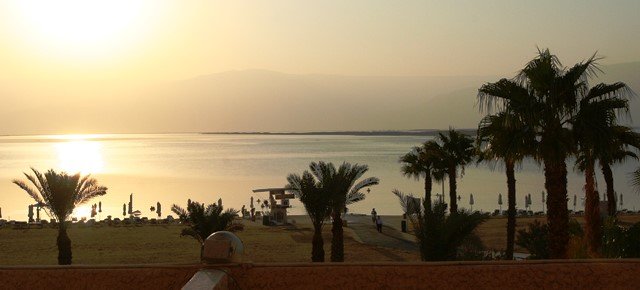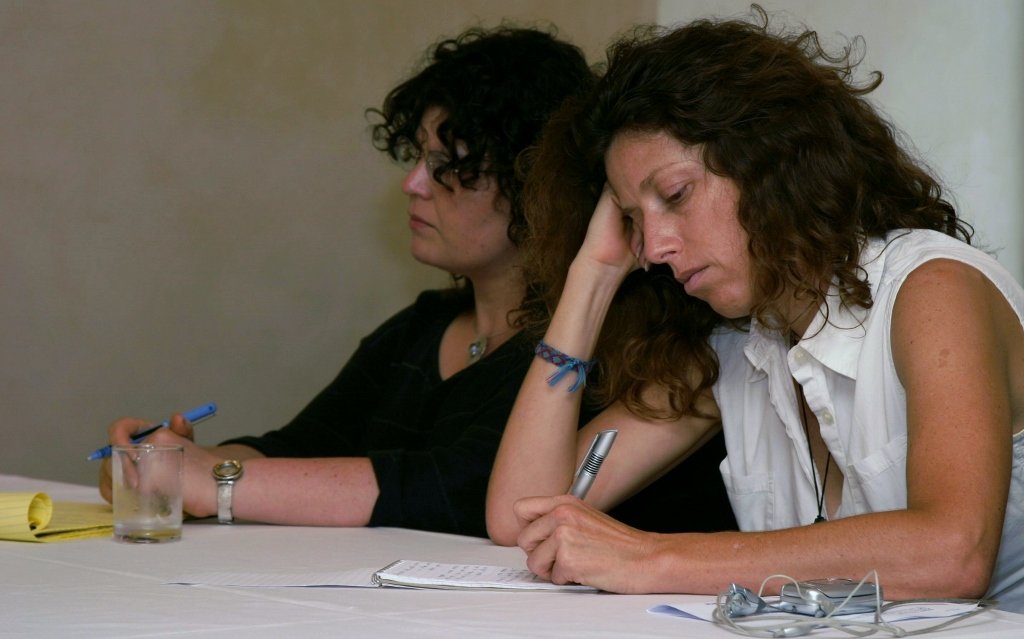Share This Story, Choose Your Platform!
Indeed, Ps 2 is frightening and dreadful. But it concludes by saying: “Blessed are all who take refuge in him!” (verse 12e). Martin Luther described this “summa summarum” of Ps 2 as an “extraordinary beautiful summa”.[1]
In his interpretation of Ps 2 on Christ Jesus, the Reformer writes: “That’s why He suffered, that’s why He’s risen, that’s why He has been installed as king, that’s why He has received everything as an inheritance, that He could save all who trust in Him.”[2] There would be nothing to add to that from the Christian point of view, if there were not a fateful exegetical tradition which wipes out everything that is Jewish and every link to the Land of Israel.
However, even in its last sentence, the message of Ps 2 should not be seen in one dimension exclusively, as Christian exegesis traditionally has often done. All hermeneutical levels of Ps 2 should be kept in mind. Christ must not be removed from His national context. Not without a good reason did Jesus emphasize: “Salvation comes from the Jews” (John 4:22).
And the saving work of God cannot be detached from its geographical context, from the Land of Israel, from the city of Jerusalem. When Paul declares in Rom 10:13, that only that person shall be saved, who will “call upon the name of the Lord”, then it is clear that the apostle quotes the prophet Joel, who continued in the same breath: “For there shall be refuge on Mt Zion and in Jerusalem” (Joel 3:5).
Just as the raging of the nations is directed against Jerusalem, against the Land of Israel, against the longing for Zion who are rooted in the word of God, i.e. just as their raging is against the Lord and His Messiah, that is exactly how the work of God through Messiah is interconnected with the people and Land of Israel, whose heart is the city of Jerusalem. Everyone who wishes to “take refuge in Him” should keep an eye on that.
Luther, finally, finds a connection between the terrible and the safety, which is expressed in the closing word of Ps 2: “Because that’s why His anger is scray, so that he may urge you to trust Him.”[3] “There is no refuge from Him,” the British exegete Derek Kidner perfectly sums up the statement of the last sentence of Ps 2, “only in him.”[4]
Samson Raphael Hirsch[5] connects the Hebrew root “חסה/hasah” (= to seek/to take refuge) with “the intensified” “חזה/hazah” (= to see, to look) and concludes: This “seeking refuge” is about “the most intimate, most expectant focusing at something”.[6]
Concrete: Anyone who seeks refuge in God will focus constantly on God and His actions. This does not happen automatically. The temptation is huge to allow the reality that surrounds us capture our attention. But whosoever turns away his focus from the Lord and His Messiah allowing themselves to be caught even for a little moment by the “strong winds”, by the raging storm, will, as Peter once did, begin to sink (compare Mt 14:22-33).
Amos Hakham[7] points to the prophet Hosea (14:8) and suggests that those who seek refuge in God, are the ones “who dwell in His shadow”.[8] Thus, the Israeli interpreter of Scripture all of a sudden leads to Psalm 91, which describes the prayer of a person who in a very challenging environment “sits in the shadow of the Most High.”
The opposite of those who seek refuge with God is the man who seeks his safety in people. The living God calls such a person “cursed” (Jer 17:5a).
Jer 17:5-8 is a parallel text to Ps 1, both in content, and in the comparisons and images it uses. The association with Jeremiah’s text underscores the connection with the psalm, which immediately precedes Ps 2. It confirms an observation that has become unavoidable at the latest with the use of the word “אַשְׁרֵי ashrei” (= happy, blessed) in the last statement of Ps 2.
The Reference Back to Psalm 1
Rabbinic teachers of Scripture discovered early on that the word “אַשְׁרֵי/ashray” is like a parenthesis around Psalms 1 and 2. The Babylonian Talmud hands down in tractate Berachot 10a a saying of “Rabbi Shmuel Bar Nahmani on behalf of Rabbi Yohanan: Every section of Scripture that David especially loved, began with ‘אַשְׁרֵי/ashray’ (= blessed is) and concluded with ‘אַשְׁרֵי/ashray’ (= blessed is). He started with ‘אַשְׁרֵי/ashray’ as it is written [in the beginning of Ps 1]: ‘Blessed is the man…’ and concluded with ‘אַשְׁרֵי/ashray’, as it is written [at the end of Ps 2]: ‘Blessed is the one who seeks his refuge in Him’.”
The first two chapters of the Book of Psalms are also linked in terms of content and language by many parentheses. Hakham observes: “In Ps 1 the wicked and the righteous face each other.” Likewise, in Ps 2 “the evil nations face the Lord and His Messiah”.[9]
Linguistic references are often only visible in the Hebrew original. Thus the Gentiles “mutter” in Ps 2:1 in vain, just as the righteous man had “muttered” over the Torah in Ps 1 day and night. Or if Ps 2:12 warns “so that you will not perish”, this is a direct connection to the statement in Ps 1:6: “The way of the ungodly will perish.”
In some cases, the opposites are striking, which directly confront each other both in terms of language and content. Thus the efforts of the Gentile nations in Ps 2:1 are “absurd,” “failing,” “into the void,” while the righteous in Ps 1 will be “successful in all things” (verse 3).
The connection between the first two chapters of the Book of Psalms is perceived as so closely by Jewish interpreters that they even claimed that they were originally one single chapter.[10] Derek Kidner observes that Ps 2 lacks a headline common to many other chapters in Psalms. Furthermore, there are indeed some ancient manuscripts that treat both psalms as one chapter.[11] However, Paul in the synagogue in Antioch in Pisidia speaks about the “second psalm,” quoting our passage (Acts 13:33).[12]
From what Ps 1 “expresses for the individual life”, Ps 2 “draws the consequences for the national life and the whole future”.[13] Whereas in Ps 1 we see a single man, an individual with a certain attitude that he makes his lifestyle, Ps 2 describes a worldwide perspective in which the individual has to prove himself. Ps 2 has a broad prophetic horizon, while Ps 1 focuses on the behavior of the individual, on ethics.
If we want to know how an individual should behave in the global chaos that Ps 2 describes; if we want to know how that looks like, “to seek refuge in Him” or “to sit in the shadow of the Almighty”, then we have to look at Ps 1.
Footnotes:
[1] Johann Georg Walch (hg.), Dr. Martin Luthers Sämtliche Schriften. Vierter Band. Auslegung des Alten Testaments (Fortsetzung). Auslegung über die Psalmen (Groß Oesingen: Verlag der Lutherischen Buchhandlung Heinrich Harms, 2. Auflage, 1880-1910), 299.
[2] Johann Georg Walch (hg.), Dr. Martin Luthers Sämtliche Schriften. Vierter Band. Auslegung des Alten Testaments (Fortsetzung). Auslegung über die Psalmen (Groß Oesingen: Verlag der Lutherischen Buchhandlung Heinrich Harms, 2. Auflage, 1880-1910), 299.
[3] Johann Georg Walch (hg.), Dr. Martin Luthers Sämtliche Schriften. Vierter Band. Auslegung des Alten Testaments (Fortsetzung). Auslegung über die Psalmen (Groß Oesingen: Verlag der Lutherischen Buchhandlung Heinrich Harms, 2. Auflage, 1880-1910), 301.
[4] Derek Kidner, Psalms 1-72. An Introduction & Commentary, TOTC (Leicester/England and Downers Grove, Illinois/USA: Inter-Varsity, 1973), 53.
[5] Samson Raphael Hirsch (1808-1888) came from Hamburg and served as Chief Rabbi in Oldenburg, Aurich, Osnabrück, Moravia and Austrian Silesia. As a distinguished representative of Orthodoxy, he was an outspoken opponent of reformist and conservative Judaism. Hirsch attached great importance to the study of all Scripture. From 1851 he was rabbi of the separatist Orthodox „Israelitischen Religions-Gesellschaft“ (“Israelite Religious Society”), engaged in education and published the monthly magazine “Jeschurun”. Hirsch had a great love for the land of Israel, was at the same time, however, an opponent of the proto-Zionist activities of Zvi Hirsch Kalischer. He is seen as one of the founding fathers of the neo-orthodox movement.
[6] Samson Raphael Hirsch, Psalmen (Basel: Verlag Morascha, 2. Neubearbeitete Auflage 2005), 12.
[7] Amos Hakham (1921-2012) became known in Israel as champion of the first Israeli and worldwide Bible quiz. His handicapped father, Noah Hakham, was a Jewish Bible teacher who had moved from Vienna to Jerusalem in 1913. He had not sent the only son to a public school for fear of a speech impediment. Rather, he himself had trained him in extremely poor conditions. The Bible quiz in August 1958 revealed Amos’ genius and established his legendary career as interpreter of Scripture. His expositions are only available to me in Hebrew.
[8] עמוס חכם, ספר תהלים, ספרים א-ב, מזמורים א-עב (ירושלים: הוצאת מוסד הרב קוק, הדפסה שביעית תש”ן/1990), ט.
[9] עמוס חכם, ספר תהלים, ספרים א-ב, מזמורים א-עב (ירושלים: הוצאת מוסד הרב קוק, הדפסה שביעית תש”ן/1990), י.
[10] עמוס חכם, ספר תהלים, ספרים א-ב, מזמורים א-עב (ירושלים: הוצאת מוסד הרב קוק, הדפסה שביעית תש”ן/1990), ג, י,
mit Verweis auf Berachot 9b und 10a.
[11] Derek Kidner, Psalms 1-72. An Introduction & Commentary, TOTC (Leicester/England and Downers Grove, Illinois/USA: Inter-Varsity, 1973), 50 n. 1.
[12] C.F. Keil and F. Delitzsch, Psalms 1-35, Commentary on the Old Testament vol.5/1. Translated by Francis Bolton (Peabody, Massachusetts/USA: Hendrickson Publishers, February 1989), 82. Derek Kidner, Psalms 1-72. An Introduction & Commentary, TOTC (Leicester/England and Downers Grove, Illinois/USA: Inter-Varsity, 1973), 49-50.
[13] Samson Raphael Hirsch, Psalmen (Basel: Verlag Morascha, 2. Neubearbeitete Auflage 2005), 6.






















